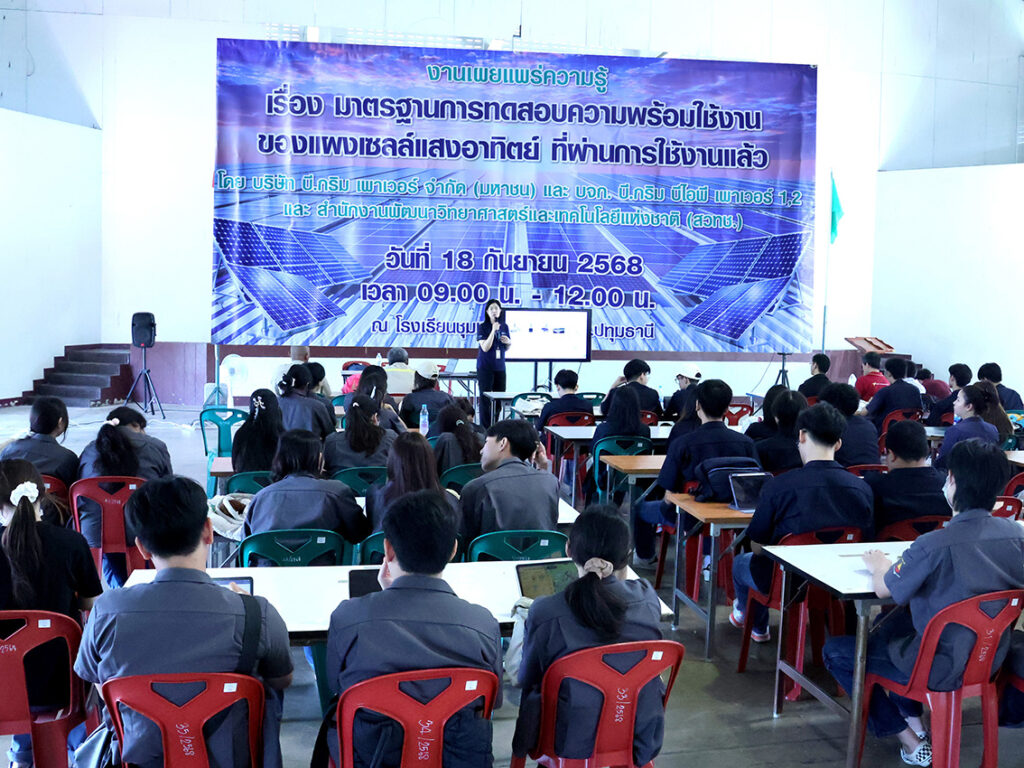September 18, 2025, at Wat Bangkadi Community School, Pathum Thani Province
The National Energy Technology Center (ENTEC), under the National Science and Technology Development Agency (NSTDA), led by Dr. Amornrat Limmanee, the Solar Photovoltaic Research Team Leader, along with researchers, Dr. Taweewat Krajangsang and Dr. Nopphadol Sitthiphol, and the Solar Photovoltaic Research Team from ENTEC’s Energy Innovation Research Group, in collaboration with B.Grimm Power Public Company Limited and B.Grimm BIP Power Co., Ltd. 1 and 2, organized a knowledge-sharing event titled “Standards for Testing the Readiness of Used Solar Panels.”
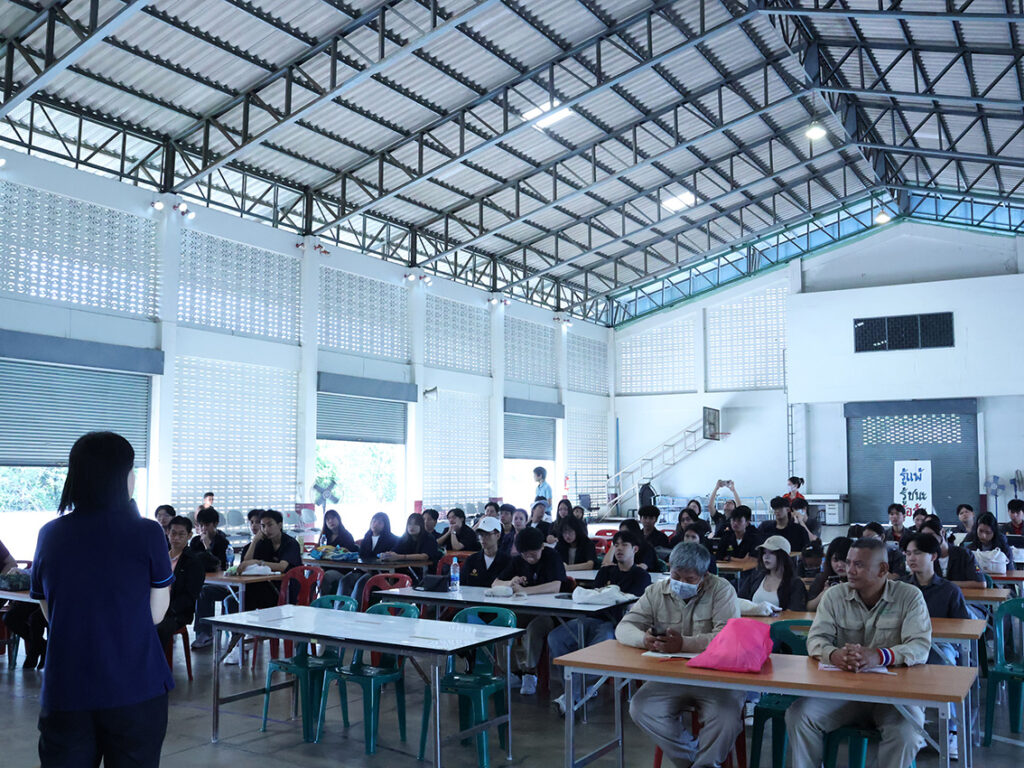
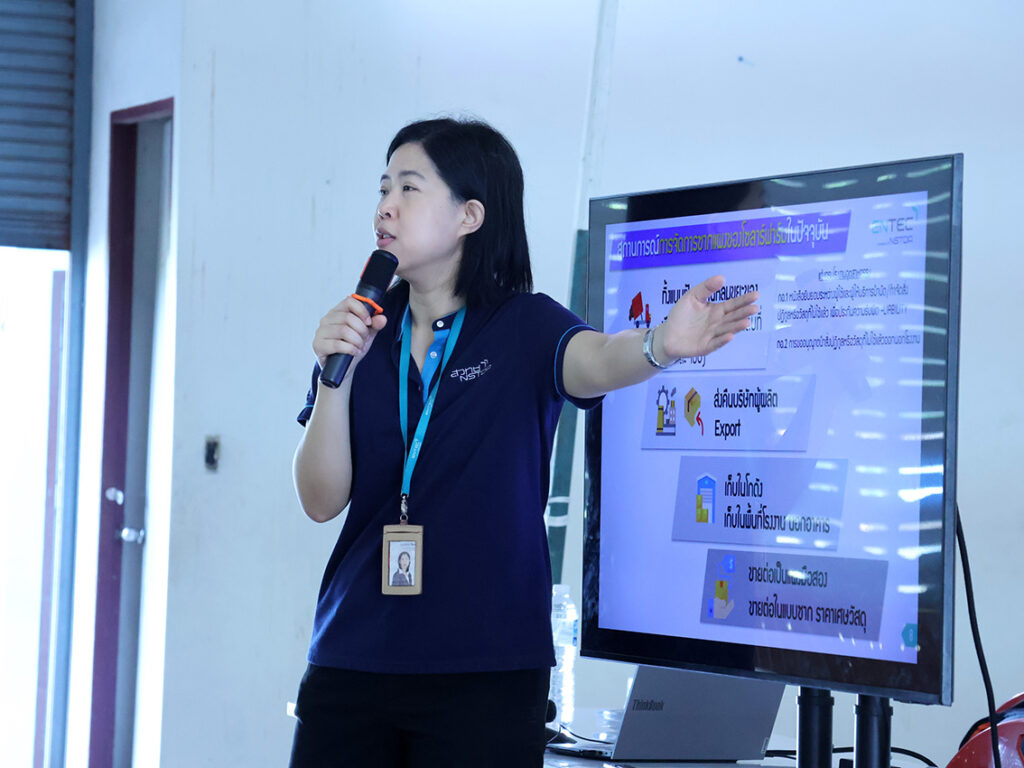
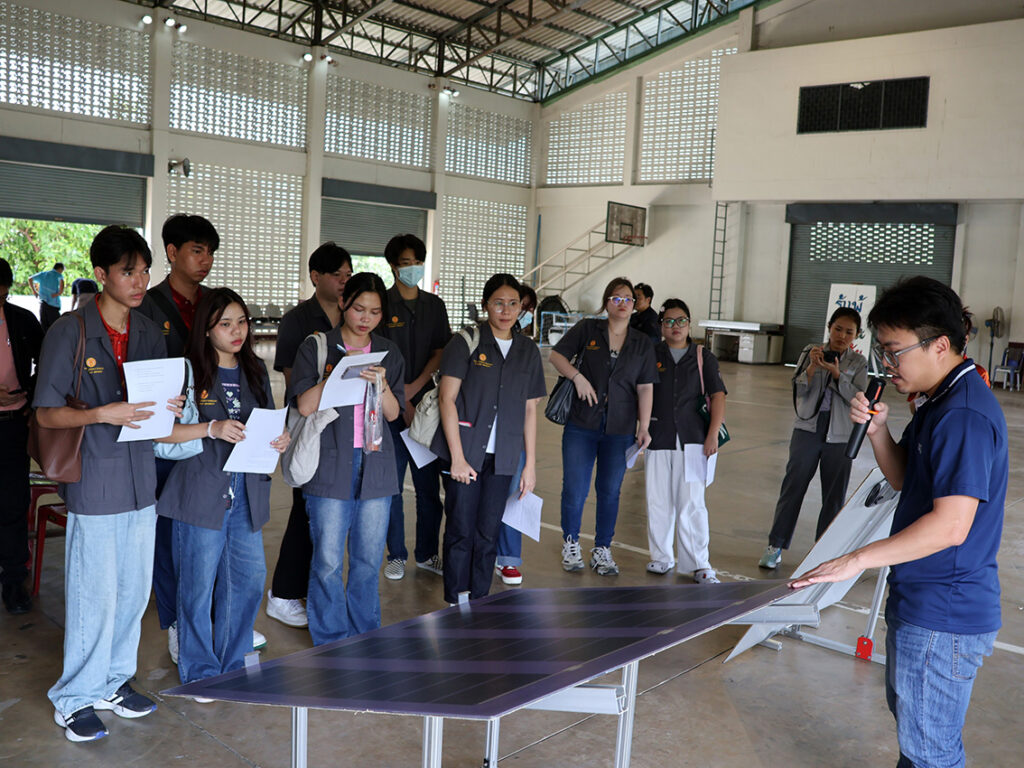
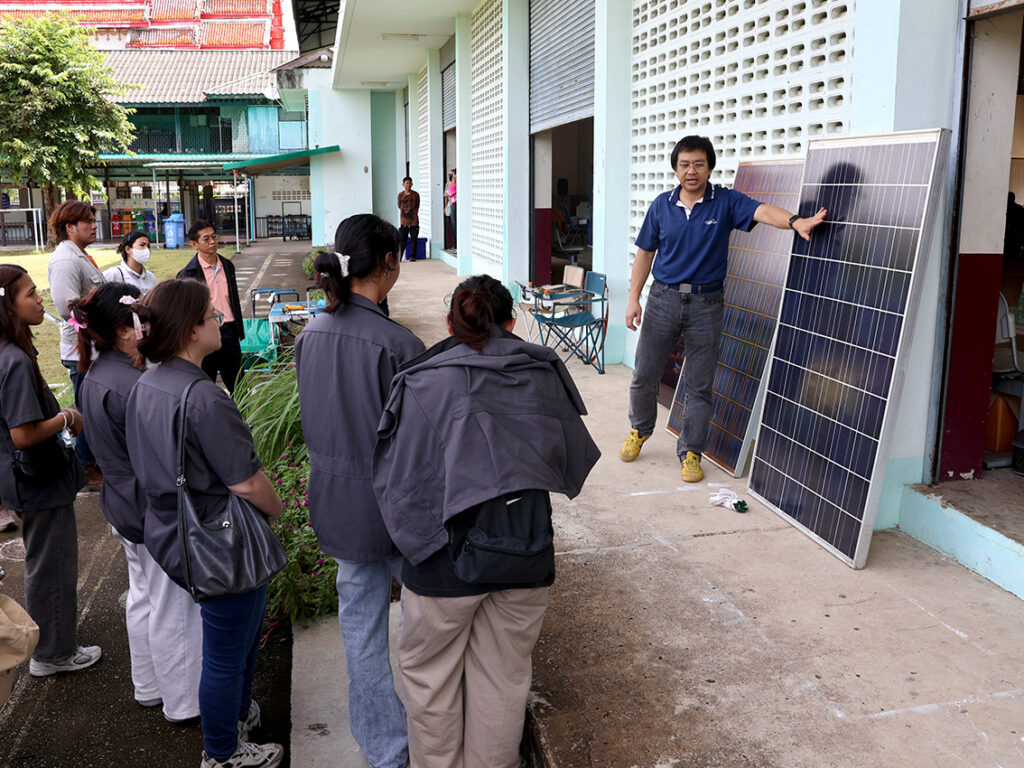
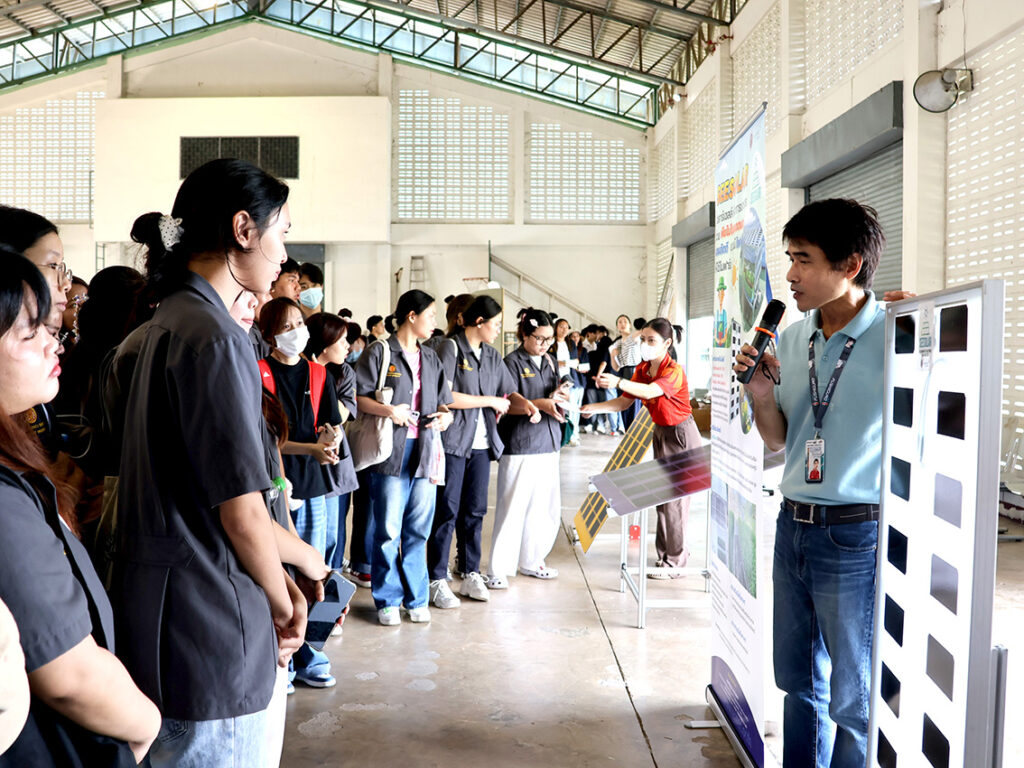
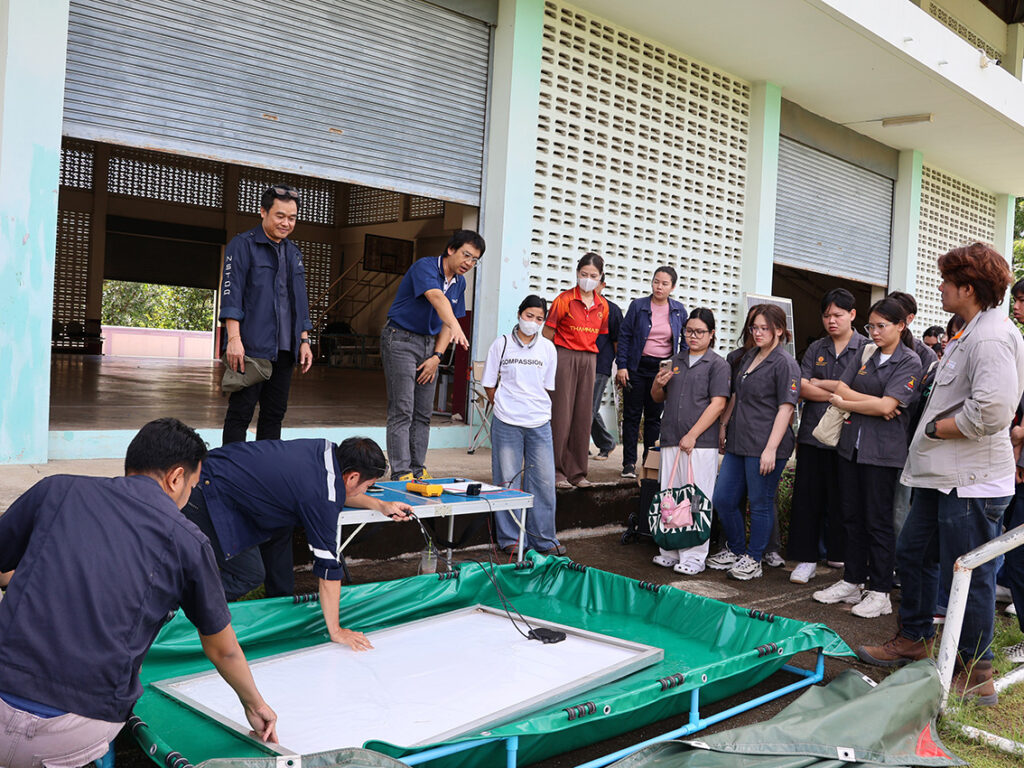
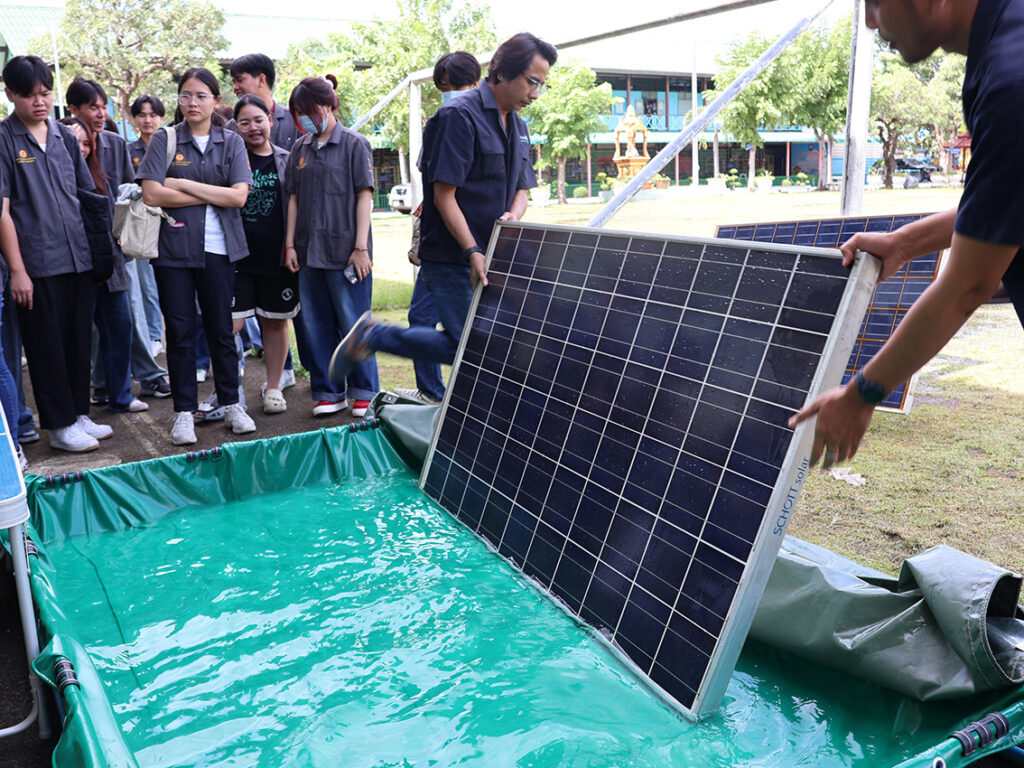
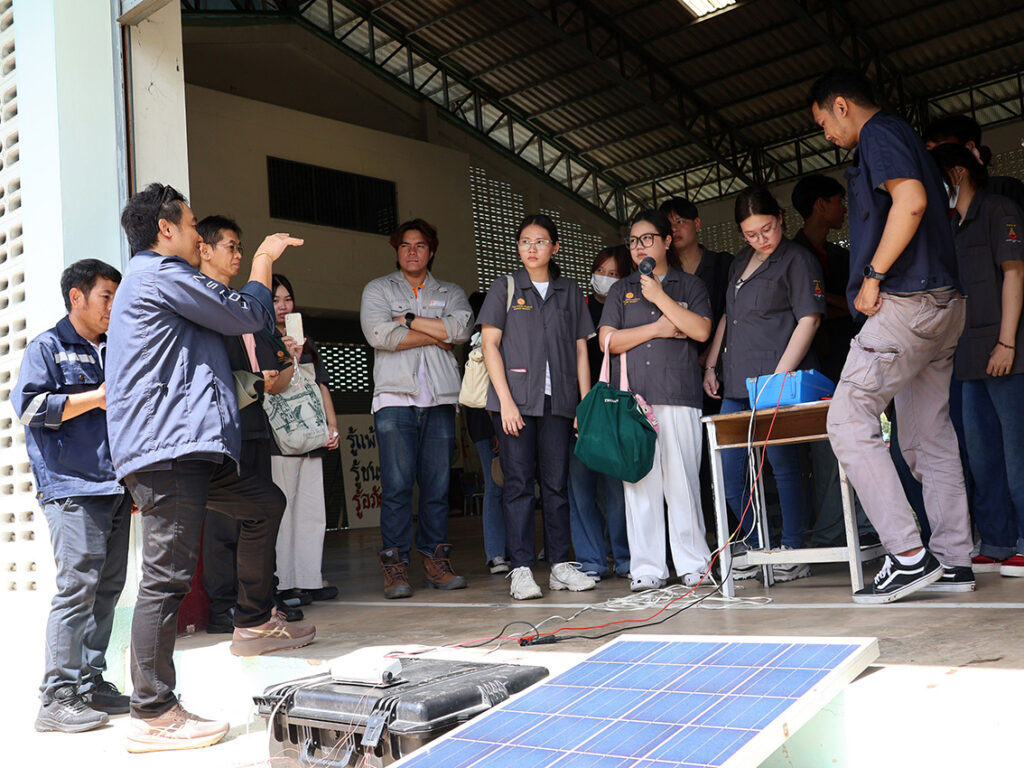
The event aimed to transfer knowledge on relevant standards, regulations, and technologies related to the management of degraded solar panels to participants from Wat Bangkadi Community School, Bangkadi Municipality, Bangkadi Industrial Park, as well as faculty and students from the Faculty of Engineering and Faculty of Science, Thammasat University. The event attracted over 70 participants.
The program features on ENTEC’s research projects such as SEESOLAR, solar cells for agriculture, applicable to both small-scale crop plots and large greenhouses with solar-integrated roofing, Mesh PV, lightweight solar panels, and PET-ACM PV Module, solar modules with aluminum composite backing, suitable for building and vehicle applications. The session also covered the principles of solar panel management standards, along with hands-on demonstrations using testing equipment to evaluate the performance and safety of used panels.
Participants also had the opportunity to learn principles behind various standards and solar panel end-of-life panel management, as well as engage in hands-on practice in the techniques for assessing and inspecting used panels, empowering them to apply this knowledge to manage used panels systematically and safely.
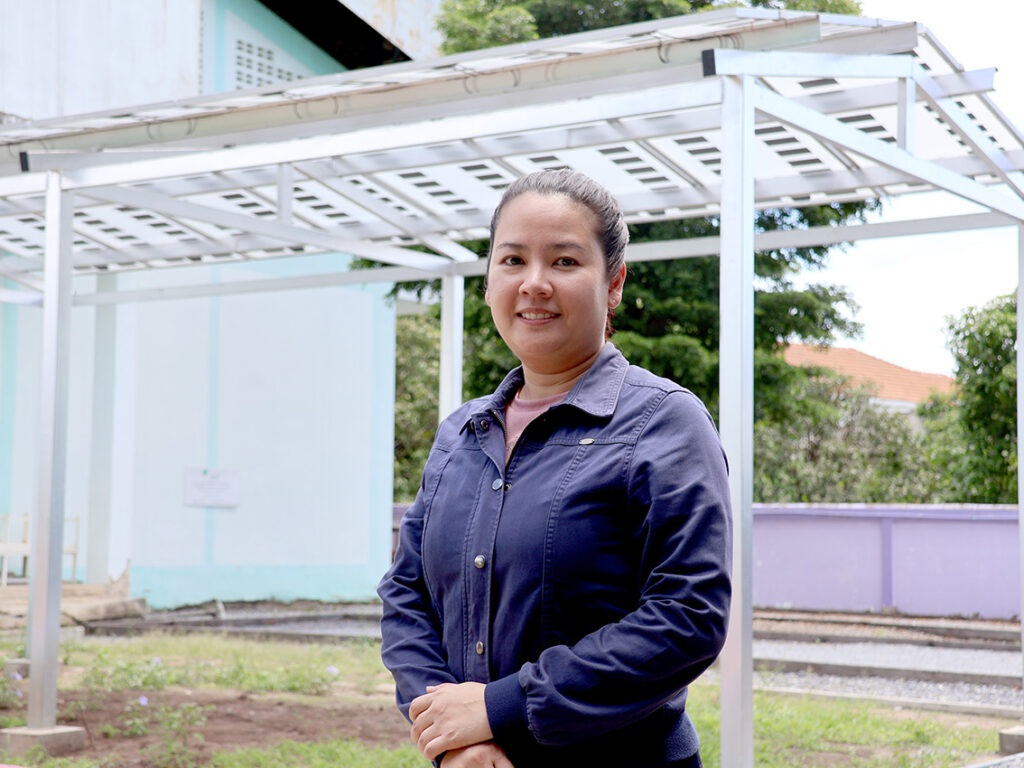
Dr. Jiraprapa Kimsuntorn, representing the Special Project Support for Power Plants Department at B.Grimm Power PCL, expressed gratitude to ENTEC for supporting the event. She highlighted the importance of knowledge transfer and emphasize three main aspects of solar panel testing: visual inspection, performance testing, and safety evaluation. She noted that, as the company currently manages a large number of solar panels and is working toward a Net Zero future, proper planning for end-of-life panel management, whether through reuse, recycling, or safe disposal is essential. This learning opportunity, she added, is therefore critical to the company’s long-term sustainability goals
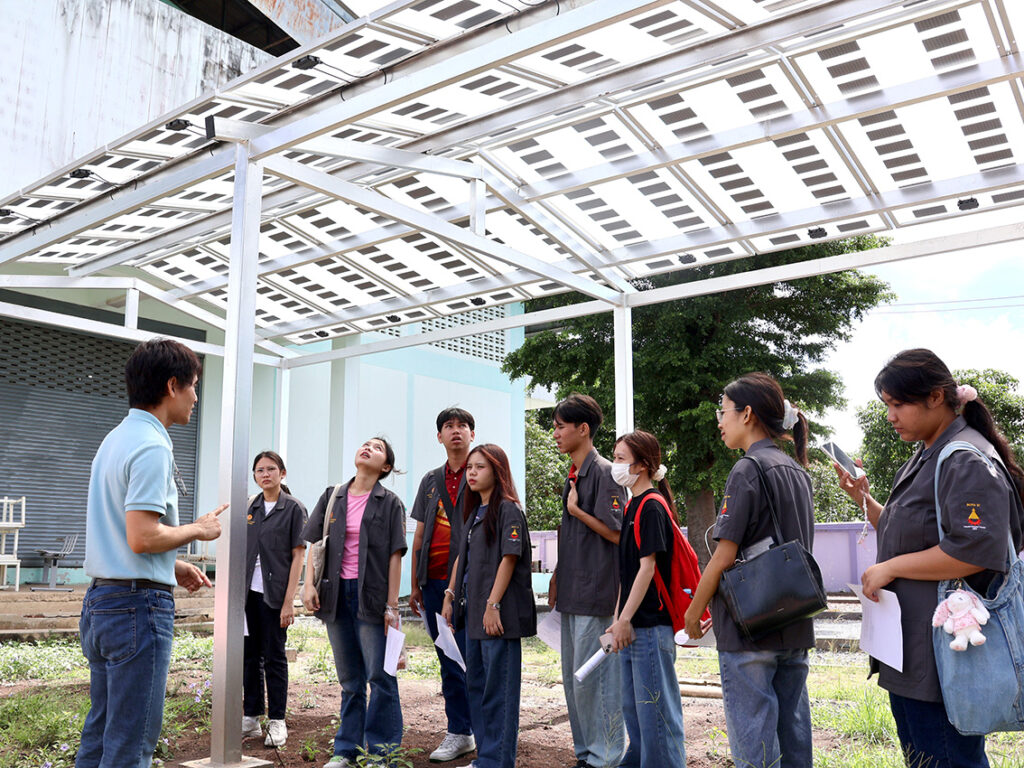
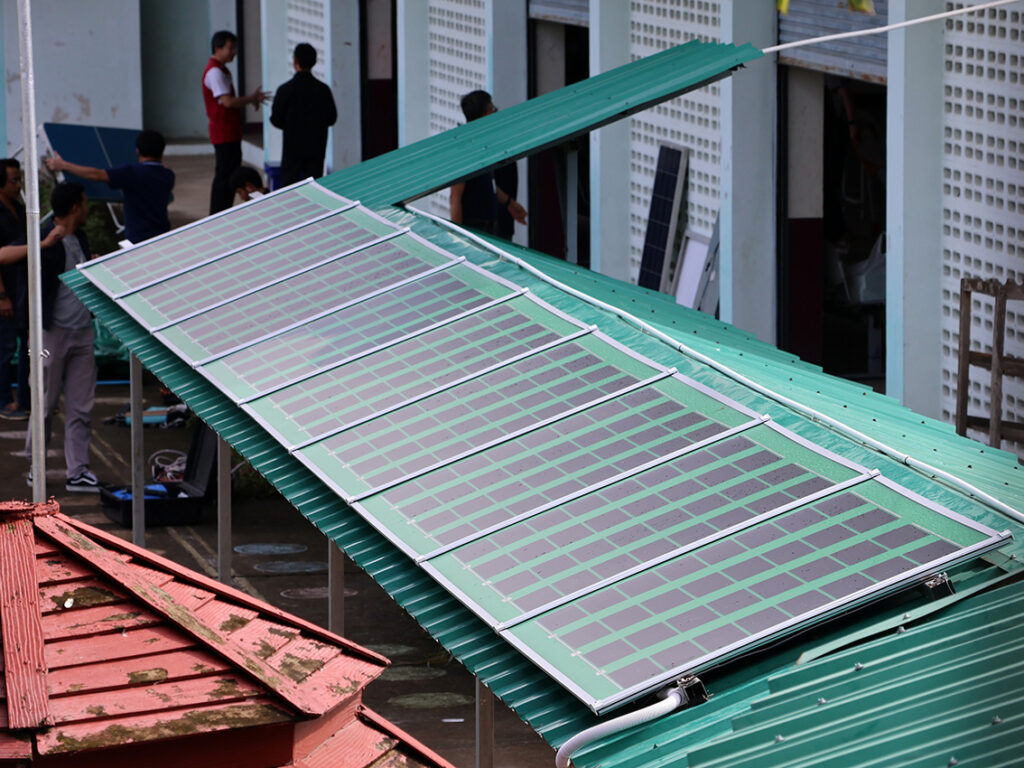
In addition, B.Grimm has collaborated with ENTEC to install semi-transparent solar panels and colorful solar panels at Wat Bangkadi Community School as part of a pilot project. These panels are being used in school activities, such as agricultural research, to study crop compatibility with different panel characteristics. The produce from these test plots could potentially become a source of additional income for students and the community. This cooperation serves as a prime example of how science, technology, and the private sector can be integrated to create new value for communities and advance sustainable clean energy management.
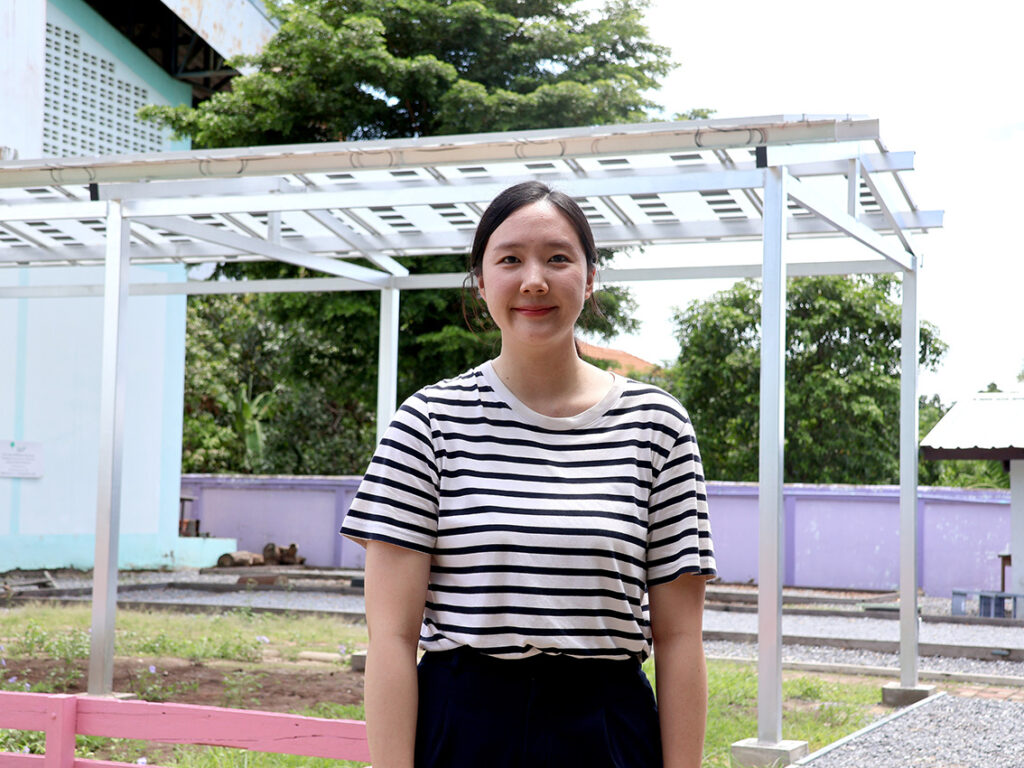
Ms. Pannisa Kitlamluekul, also from B.Grimm’s Special Project Support for Power Plants team, added that installing solar panels at the school enables it to generate its own electricity, reducing reliance on grid-supplied power, most of which comes from fossil fuels. This initiative supports national carbon reduction efforts, aligns with environmental and energy sustainability goals, and reflects the company’s commitment to building a clean energy society while supporting local community development.
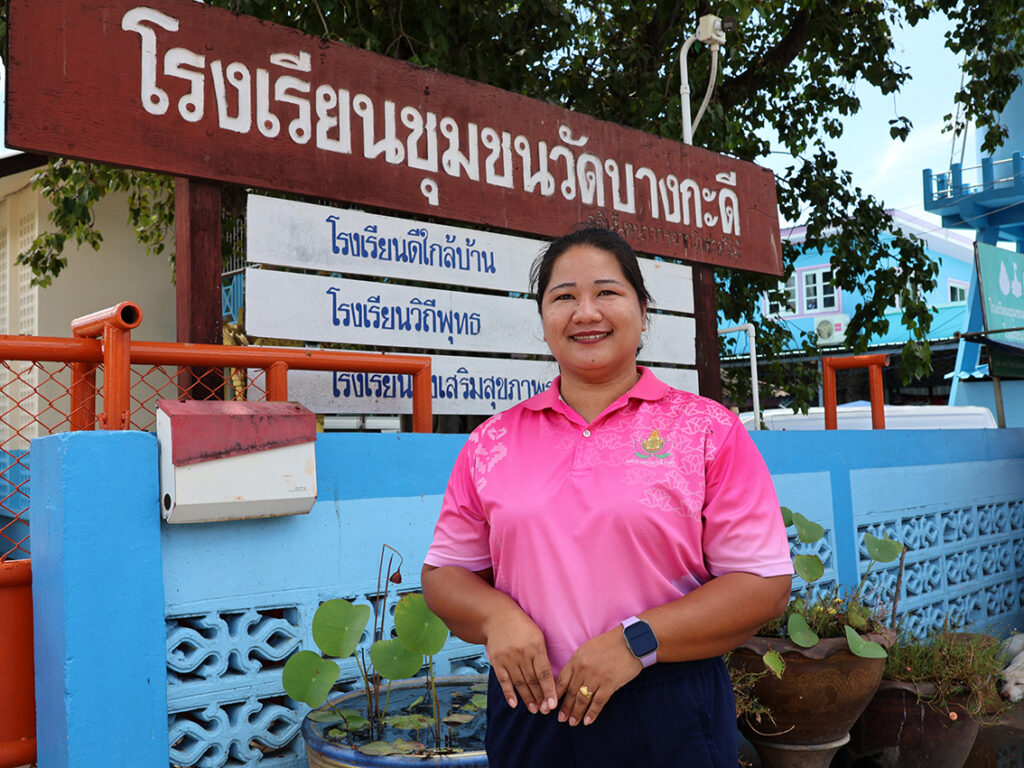
Ms. Nusarin Angkasing, a senior teacher at Wat Bangkadi Community School, shared her appreciation and gratitude to B.Grimm Power PCL and ENTEC for their support in providing knowledge and installing the solar system. The solar electricity is now being used across various parts of the school, including classrooms, the computer lab, and agricultural greenhouses. As a result, the school’s monthly electricity bills have dropped from around 6,000–7,000 baht to approximately 3,000 baht, representing about 60% savings. Beyond cost reduction, this project also serves as a valuable learning resource, helping students understand the importance and benefits of clean energy.

